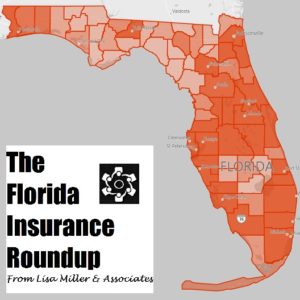Answers and Advice

Business Insurance by Nick Youngson CC BY-SA 3.0 Alpha Stock Images
While some businesses have filed business interruption (BI) insurance claims and lawsuits, Congress and a few individual states are trying to craft a variety of broader solutions. I recently talked with two experts – one an insurance attorney and consultant and the other a 30-year independent adjuster – for answers and advice to help policyholders and insurance companies. Our chat is the latest episode of The Florida Insurance Roundup podcast.
So the multi-billion dollar question is this: Do businesses with BI policies have a valid insurance claim because the government shut them down and/or their business was “interrupted”? Most BI policies specifically exclude viruses. The rest are iffy because they require actual physical damage. Other claims are being filed based on the civil authority clause in many policies, where a government authority has ordered a business to be closed.
“Typically (in civil authority), you get up to three weeks and it’s where you cannot enter the property. Here in most cases, you can enter the property,” said John Burkholder, an attorney and consultant with Municipal Partners, a firm specializing in risk management for local governments. “The plaintiff’s bar, the claimants, are saying ‘Well we can’t enter because the civil authority says that there are dangerous conditions in the area and because of the latency of this virus, we can’t get into our property and therefore it triggers business interruption income coverage.’”
 With BI claims filings on the rise, the stakes are higher, according to Kevin Miller (no relation), a Sarasota-based claims adjuster with Velocity Claims Administration, an independent adjusting firm. “It’s about getting recorded statements from the policyholder, gathering documents, collecting information, and sending out reservation of rights letters. Remember, you have to be concerned about avoiding unfair claims practices or bad faith.”
With BI claims filings on the rise, the stakes are higher, according to Kevin Miller (no relation), a Sarasota-based claims adjuster with Velocity Claims Administration, an independent adjusting firm. “It’s about getting recorded statements from the policyholder, gathering documents, collecting information, and sending out reservation of rights letters. Remember, you have to be concerned about avoiding unfair claims practices or bad faith.”
The three of us also discussed the various proposals in Congress to provide relief. The Business Interruption Insurance Coverage Act of 2020 would force coverage for the virus, whether it’s in the policy or not. The Pandemic Risk Insurance Act (PRIA) would “create a reinsurance program similar to TRIA for pandemics, by capping the total insurance losses that insurance companies would face,” according to the draft, thereby helping insurance carriers pay the claims.
“Those policies that didn’t exclude (viruses) should be paid and they should be paid promptly,” said Burkholder, who is also a former Kentucky deputy insurance commissioner and a certified insurance examiner. But beyond those policies, “it’s a huge, huge exposure and I don’t think it was priced or anticipated or included in what insurance was going to do. We have to come up with a solution that doesn’t kill the golden goose,” he said.
Guest Kevin Miller noted that the PRIA Act, as currently contemplated, applies only to future pandemics. “What we can do, and this may be counterintuitive, is hope for more claims, even if they’re being denied. Because the more claims that carriers are getting on the aggregate, we can take that back to our congressional representatives and say ‘Look, this is how big this is getting. Your PRIA Act is not going to take care of it’,” he said.
We discussed a lot more, so help yourself by clicking here to listen to our full conversation about “Coronavirus Insurance Challenges”.
LMA Newsletter of 5-11-20

